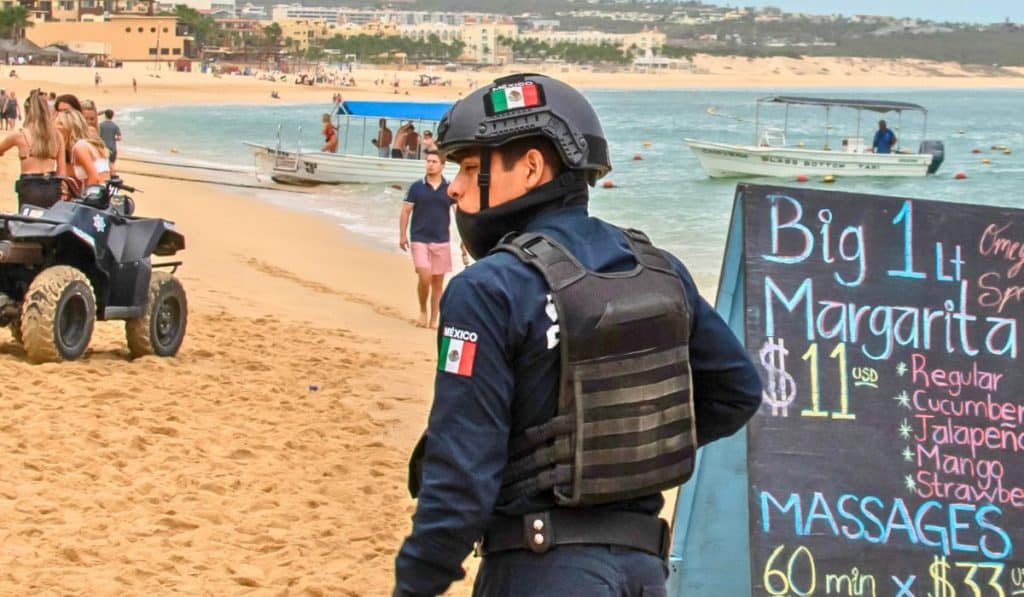The U.S. Embassy and Consulates in Mexico have issued a travel advisory for American citizens planning to visit Mexico during spring break. The advisory emphasizes that violent crime is a risk across Mexico, including in popular destinations such as Cancun, Playa Del Carmen, and Tulum.
The warning does not include Los Cabos.
The U.S. Embassy advises visitors to enroll in the Smart Traveler Enrollment Program, purchase travel insurance, practice moderation with alcohol consumption, monitor their credit and debit card activity closely, and ensure the safety of their personal belongings, particularly when using public transportation.
For the spring break season, the local government of Los Cabos has enhanced security measures and intensified road patrols.
Additionally, to prevent travelers from falling victim to scams by street vendors, local authorities are increasing enforcement against unlicensed vendors in the area.
Crime Was Also On The Rise In Baja California Sur In January
The Baja California Sur Stoplight Report monitors 11 crimes, categorizing them with a stoplight system: green for low occurrence, yellow for caution, and red for high crime levels.
In January, Los Cabos had red indicators for six crimes, including drug dealing and family violence, while five others like homicide and kidnapping showed green. December’s report showed only three red indicators. This system helps in identifying areas of concern and tracking crime trends over time.
How to Stay Safe in Los Cabos
While Los Cabos is generally considered a safe destination in Mexico, there are measures you can take to ensure an unforgettable trip.
- When red or black flags are posted at the beach, it’s best to refrain from swimming, as even experienced swimmers could face hazards in these conditions. Likewise, if you notice white flags flying over the ocean, it indicates the presence of jellyfish, and it’s advisable to avoid entering the water.
- Engage with local culture respectfully: Understanding and respecting local customs and laws can enhance your experience and keep you out of trouble.
- Stick to well-traveled areas, especially at night: Popular and well-lit areas are generally safer. Avoid isolated streets or beaches after dark to minimize risks.
- Pre-booking transportation is recommended, as unlicensed taxis are common in the region. Travelers should steer clear of unauthorized tourist transfer services and opt for reputable options like Uber or arranging transfers through their hotel or resort.
- Make copies of important documents: Having digital or photocopies of your passport, ID, and travel insurance can be a lifesaver in case of loss or theft.
- Stay informed about local safety updates: Keep up with travel advisories and local news. Understanding current events can help you avoid unsafe situations.
- The U.S. embassies and consulates in Mexico also emphasize the importance of dialing 911 in case of an emergency. Seeking assistance from locals is encouraged, as emergency calls can be handled in Spanish.


